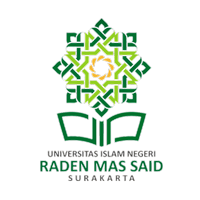Adianti, S. Y. (2020). Perencanaan Tata Ruang sebagai Upaya Mewujudkan Pembangunan Kota Berkelanjutan (Studi Analisis Rencana Tata Ruang Wilayah Kota Mojokerto). Jurnal Ilmiah Administrasi Publik, 006(01), 108–117. https://doi.org/10.21776/ub.jiap.2020.006.01.13
Ali, D. M., & Agushi, D. M. (2024). Eco-Islam: Integrating Islamic Ethics into Environmental Policy for Sustainable Living. International Journal of Religion, 5(9), 949–957. https://doi.org/10.61707/gq0we205
Amos, S. (2015). Studi pengelolaan sampah berbasis komunitas pada kawasan permukiman perkotaan di Yogyakarta. Jurnal Wilayah Dan Lingkungan, 3(1), 27–38.
Aqsa Tasgheer, & Tehreem Fatima. (2022). Sustainable Development and Natural Resource Management for Environmental Stability: An Islamic Approach. International Research Journal on Islamic Studies (IRJIS), 4(1), 41–56. https://doi.org/10.54262/irjis.04.01.e03
Auwalin, I., Rumayya, & Sukartini, N. I. M. (2024). Environmental Impacts of Green Open Space in Urban Indonesia: A Difference-in-Differences Analysis. Asian Development Review, 42(1), 89–116. https://doi.org/10.1142/S0116110525500039
Derysmono, & Kahfi, A. (2025). Islamic Environmental Ethics and Waste-to-Energy Innovation : Insights from the Quran. Quhas, Journal of Qur’an and Hadith Studies, 14(1), 134–154. https://doi.org/10.15408/quhas.v14i1.45155
Dharyan, Y., Agil R, M. A., Zoish, S., Fauzi, M., & Simamora, Y. (2025). Analisis Hukum: Konversi Lahan Pertanian Dan Dampaknya Terhadap Ketahanan Pangan. 10(7), 1–6.
Faisal. (2022). Konsep dan Peran Ruang Terbuka Hijau dalam Pembanguna Perkotaan. REFORM : Jurnal Pendidikan, Sosial, Dan Budaya, 5(03), 32–40. https://doi.org/10.70004/reform.v5i03.111
Fuady, M., Buraida, Kevin, M. A., Farrel, M. R., & Triaputri, A. (2025). Enhancing Urban Resilience: Opportunities and Challenges in Adapting to Natural Disasters in Indonesian Cities. Sustainability (Switzerland), 17(4), 1–15. https://doi.org/10.3390/su17041632
Idrus, A., Ningsih, B. H., Surhayani, E., Febrianti, I. A., Pinandar, L. S., Reza, M., Ali, I., Piazuri, L., Saputri, N., Febrianti, R., & Wahyudi, S. (2024). Formation of A Group of Waste Management Youth In Tanjung Luar Village ,. 2(April), 64–69.
Isbilly, I. El, Amarrohman, F. J., & Firdaus, H. S. (2025). Pemetaan Potensi Pengembangan Kawasan Permukiman Di Kecamatan Jepara Kabupaten Jepara Menggunakan Metode Sistem Informasi Geografis. Jurnal Geodesi Undip, 41–47.
Juwita Silalahi, Ronald Hasibuan, & Immanuel D. B. Silitonga. (2023). Pengaruh Metode Pembelajaran Outdoor Learning Terhadap Keterampilan Menulis Laporan Observasi Siswa Kelas X Sma Negeri 5 Pematang Siantar. Jurnal Review Pendidikan Dan Pengajaran, 6(4), 1086–1100.
Klongrua, S., Umari, K., & Muftahuddin. (2024). Maqasid al-Shariah and Environmental Sustainability: An Islamic Economic Perspective. Journal Of Kita Kreatif, 1, 12–19.
Kurniati, S. A., Rahayu, P., & Istanabi, T. (2022). Peri-Urbanisasi Dan Dinamika Perkembangan Kawasan Perkotaan Sekunder (Studi Kasus: Bosukawonosraten). Desa-Kota, 4(2), 167. https://doi.org/10.20961/desa-kota.v4i2.55247.167-180
Kusumastuti, A. C., Kolopaking, L. M., & Barus, B. (2018). Faktor yang Mempengaruhi Alih Fungsi Lahan Pertanian Pangan di Kabupaten Pandeglang. Jurnal Sosiologi Pedesaa, 6(2), 130–136.
Made, N., Wina, A., Yahya, F., Ananda, F. H., & Ekarini, F. (2024). Bagaimana Masyarakat Urban Sampah : Pembelajaran. Jurnal Program Studi Pendidikan Masyarakat, 5(1), 431–447.
Mafruhah, I., Istiqomah, N., & Ismoyowati, D. (2025). Penerapan Ekonomi Hijau pada Pengelolaan Sampah Rumah Tangga ( Organik ) Berbasis Pemberdayaan Ekonomi. 6(2), 1115–1128.
Mutakin, A., & Waheeda. (2023). Fiqh Ekologi; Upaya Merawat Lingkungan Hidup Berbasis Konsep Maqashid Syariah. Syariah: Journal of Fiqh Studies, 1(2), 107–126. https://doi.org/10.61570/syariah.v1i2.31
Nugroho, S., Yuliani, E., & Kautsary, J. (2022). Fenomena Urban Sprawl terhadap Faktor-faktor Perubahan Penggunaan Lahan di Pinggiran Kota. Journal of Urban and Regional Planning, 3(1), 1–8.
Nursanty, E., Alie Syahbana, J., & Suprapti, A. (2018). Using City Branding as the Part of the Intersection Point of Modernization and Tradition. Case Study: Surakarta City (Solo), Indonesia. SHS Web of Conferences, 41, 04001. https://doi.org/10.1051/shsconf/20184104001
Pradhana, S. L. (2021). Analisis Perubahan Penggunaan Lahan Kecamatan Kartasura Kabupaten Sukoharjo Tahun 2010 Dan 2020. 167(1), 1–5. http://eprints.ums.ac.id/id/eprint/96515
Pradoto, W., Setiyono, B., Wahyono, H., & Joong Choi, M. (2024). Peri-urbanisation in Surakarta City and Economic Transformation in the Fast-Growing Region of Sukoharjo Regency. Forum Geografi, 38(2), 203–221. https://doi.org/10.23917/forgeo.v38i2.5497
Pramitasari, D., & Sarwadi, A. (2015). A Study on Elderly’s Going Out Activities and Environment Facilities. Procedia Environmental Sciences, 28(SustaiN 2014), 315–323. https://doi.org/10.1016/j.proenv.2015.07.040
Prayitno, G., Dinanti, D., Hidayana, I. I., & Nugraha, A. T. (2021). Place attachment and agricultural land conversion for sustainable agriculture in Indonesia. Heliyon, 7(7), e07546. https://doi.org/10.1016/j.heliyon.2021.e07546
Putri, I. D., Martanto, R., & Junarto, R. (2024). Dampak Alih Fungsi Lahan Terhadap Ketahanan Pangan, Lingkungan, dan Keberlanjutan Pertanian di Kabupaten Sleman. Widya Bhumi, 4(1), 55.
Putri, N. M., Taroreh, R. D. C., & Rengkung, M. M. (2022). Analisis Perubahan Penggunaan Lahan Pertanian Menjadi Lahan Terbangun Di Kecamatan Lolak Kabupaten Bolaang Mongondow. Fraktal, 7(2), 1–8.
Ramadhan, R., Widiatmaka, W., & Sudadi, U. (2016). Perubahan Penggunaan Lahan Dan Pemanfaatan Ruang Pada Wilayah Rawan Longsor Di Kabupaten Banjarnegara, Jawa Tengah. Journal of Natural Resources and Environmental Management, 6(2), 159–167. https://doi.org/10.19081/jpsl.2016.6.2.159
Rohmah, W., Ramadhani, M., & Amri, G. F. (2024). Ketahanan Pangan Kota Surakarta Sebagai Kota Urbanisasi di Jawa Tengah. Jurnal Bengawan Solo Pusat Kajian Penelitian Dan Pengembangan Daerah Kota Surakarta, 3(1), 37–44. https://doi.org/10.58684/jbs.v3i1.46
Rusandi, A., Hakim, A., Wiryawan, B., Sarmintohadi, & Yulianto, I. (2021). Pengembangan Kawasan Konservasi Untuk Mendukung Pengelolaan Perikanan yang Berkelanjutan di Indonesia. Marine Fisheries : Journal of Marine Fisheries Technology and Management, 12(2), 137–147. https://doi.org/10.29244/jmf.v12i2.37047
Setiadi, A. (2015). Studi Pengelolaan Sampah Berbasis Komunitas pada Kawasan Permukiman Perkotaan di Yogyakarta. Jurnal Wilayah Dan Lingkungan, 3(April), 27–38.
Somantri, L. (2022). Pemetaan mobilitas penduduk di kawasan pinggiran Kota Bandung. Majalah Geografi Indonesia, 36(2), 95. https://doi.org/10.22146/mgi.70636
Wibowo, A. B., Anggoro, S., & Yulianto, B. (2015). Status Keberlanjutan Dimensi Ekologi Dalam Pengembangan Kawasan Minapolitan Berkelanjutan Berbasis Perikanan Budidaya Air Tawar Di Kabupaten Magelang. SAINTEK PERIKANAN : Indonesian Journal of Fisheries Science and Technology, 10(2), 107–113. https://doi.org/10.14710/IJFST.10.2.107-113
Wibowo, B. R. G., Rahayu, P., & Kusumastuti, K. (2024). Peri-urbanisasi dan Perubahan Struktur Ruang Perkotaan di Kawasan Solo Baru. Desa-Kota, 6(1), 26. https://doi.org/10.20961/desa-kota.v6i1.76288.26-41
Winarso, H., Hudalah, D., & Firman, T. (2015). Peri-urban transformation in the Jakarta metropolitan area. Habitat International, 49, 221–229. https://doi.org/10.1016/j.habitatint.2015.05.024

